Simon Yates crashes and loses time in fraught Giro d'Italia finale
Briton finishes 16 seconds down on race leader Roglic
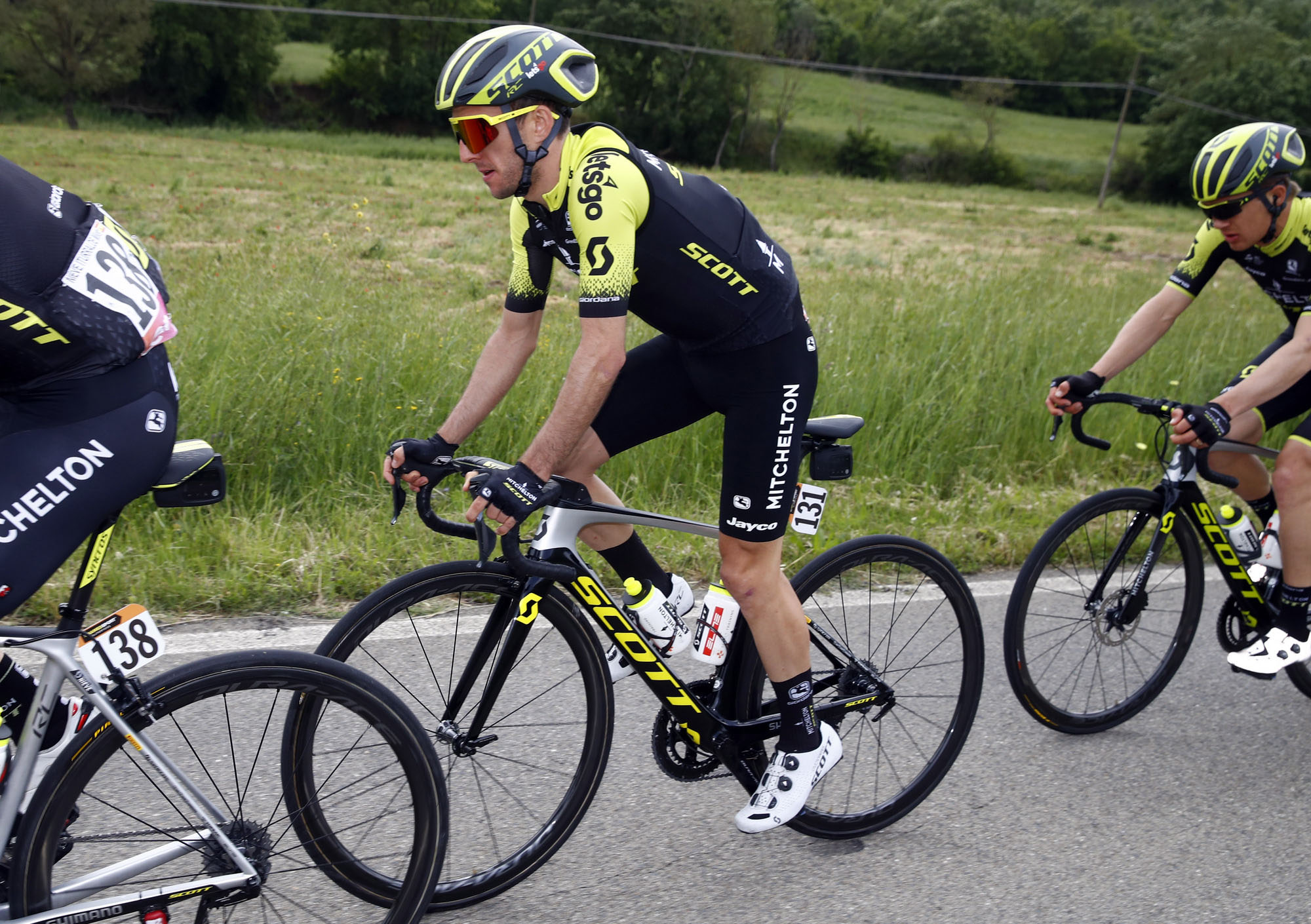
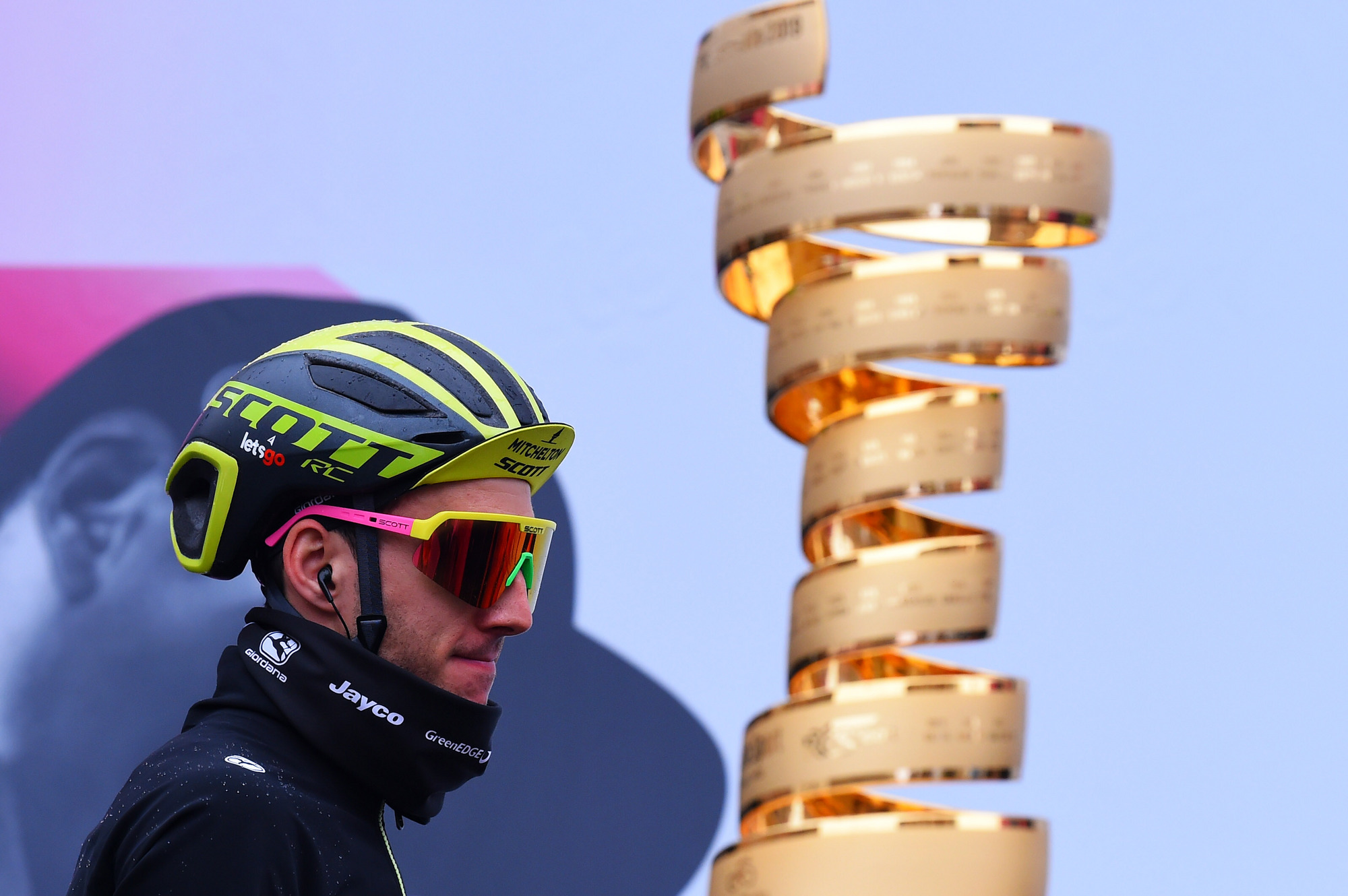
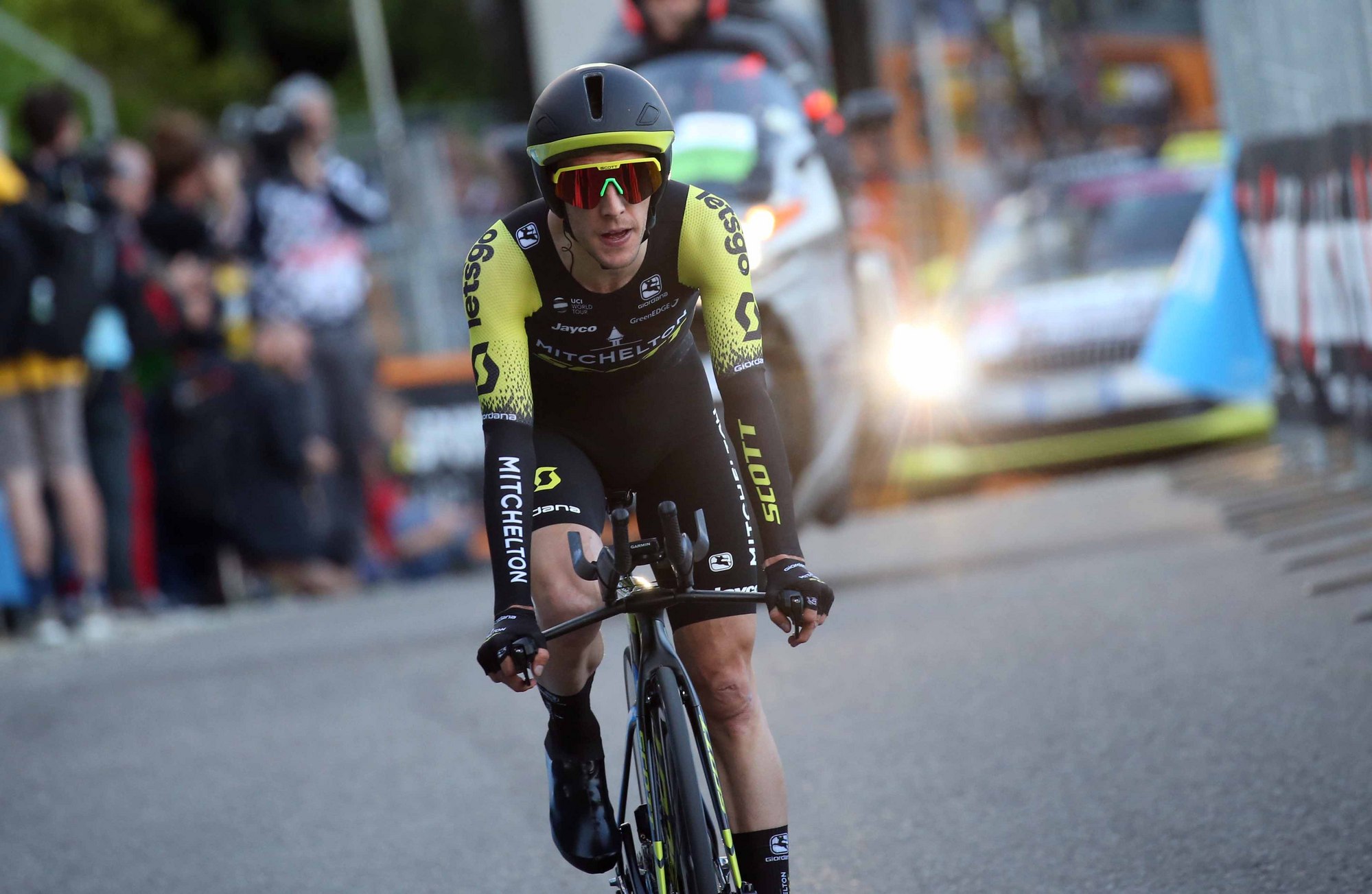
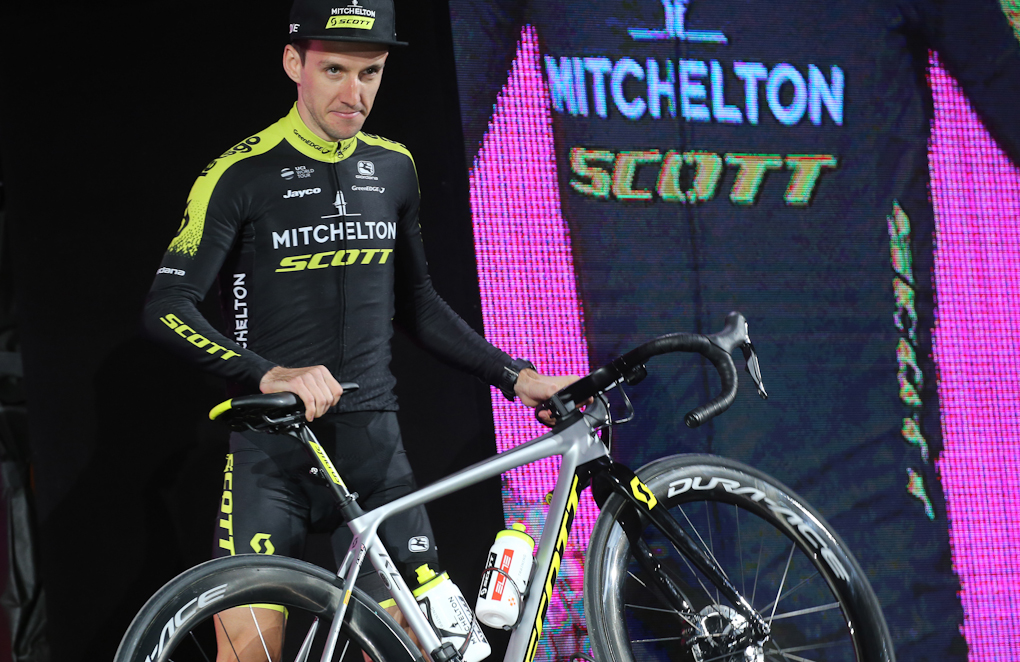
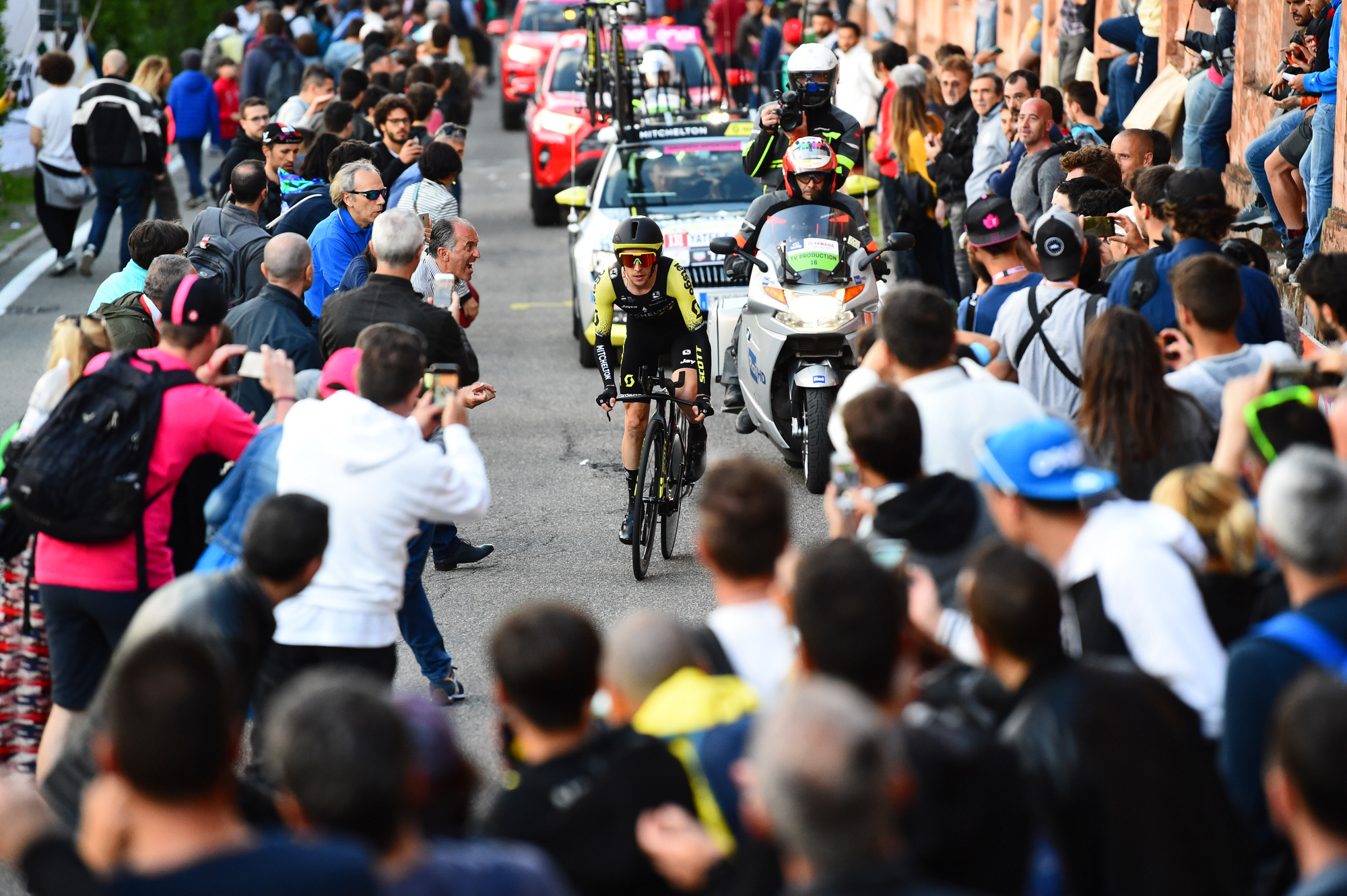
A crash-heavy and chaotic finale on stage 4 of the Giro d’Italia saw Simon Yates (Mitchelton-Scott) amongst those affected, but with minor time losses he is able to continue his battle for GC victory.
Unfinished business for Simon Yates at Giro d'Italia
Unfinished symphony: Simon Yates and the Giro d'Italia
Simon Yates: I'm the number one favourite for the Giro d'Italia
Landa apologises after calling Simon Yates 'mentally retarded' following Giro d’Italia crash
Giro d’Italia GC analysis: Anything can happen, and it usually does
Yates fell in the second of two big crashes, around six kilometres from the line, but was quickly back up again and riding to limit the gaps on leader Primož Roglič (Jumbo-Visma).
The Briton crossed the line in tenth place, 18 seconds down in a small group of chasers. He therefore remains second overall, albeit with a difference that has almost doubled, from 19 to 35 seconds.
Having showered and then descended back off the team bus to talk to reporters, Yates gave a typically concise but clear description about what had been a fraught finale in which he still had suffered some damage, but which could have been much worse.
“Everybody was fighting for position at a roundabout and a rider slid out in front of me, it was nobody’s fault, not blaming anybody, these things happen. But I got up quickly and I had the guys around me to limit the losses," he said. “Of course I’d have preferred to have been in front but it’s just one of those things.”
Yates took knocks to his left hip and knee and his left-hand side generally, but as he said, the key thing would be how he felt the next morning after a night’s rest.
As for how these crashes could be seen in the bigger picture of racing and whether the Giro was an exceptionally dangerous event, Yates did not feel that cycling’s second Grand Tour had a particularly bad track record.
Get The Leadout Newsletter
The latest race content, interviews, features, reviews and expert buying guides, direct to your inbox!
“We just try to stay safe, and crashes are part of the sport unfortunately and that’s it. It’s no worse than any other race. It’s just one of those things.”
As for the consequences of his GC bid and how it affected his time loss behind Roglič, Yates said, “of course I wouldn’t like to lose any more time. The gap was already probably too big, but the Giro’s long and we’ll see.”
Asked if his team leader had had a narrow escape, Mitchelton-Scott’s sports director Matt White said “Definitely. Simon got through the first crash, but then he went down on the roundabout, the same crash that Tom [Dumoulin-Sunweb] went down on, but in Simon’s case only losing 16 seconds to Roglič in the finish.”
“Our guys did a very good job in the last 90 minutes, they were looking after him, he escaped the first one, but went down in the second. I don’t know the details, but he was in a good position, but you do make your own luck, specially with your team-mates.”
White had done his homework, reconning the stage along with the rest of the Giro route in March, but the route’s finale was then changed by the organisation about two weeks ago, making it “easier, 15 or 16 kilometres, but more technical at the finish.”
In terms of the big picture, White said it changed “nothing at all. These first 12 stages are about managing the load of the team and getting through as well as possible before the real race starts.”
“We’ve gained a little bit of time on some rivals, obviously Dumoulin lost a lot and [Mikel] Landa lost about 30 seconds, but Simon’s in the same time as [Miguel Ángel] López (Astana Pro Team), [Vincenzo] Nibali (Bahrain-Merida).”
As for why there were crashes, White reasoned that “when it’s so easy in the stage, it does make for more nervous in the last hour of racing.”
On this occasion at least, Yates came through relatively unscathed, or as White observed, “we got away with it pretty well.” The mountains and time trial, though, are still a long way away, and if there was a moral from Tuesday’s tough stage, it was that nobody can take anything for granted.
Alasdair Fotheringham has been reporting on cycling since 1991. He has covered every Tour de France since 1992 bar one, as well as numerous other bike races of all shapes and sizes, ranging from the Olympic Games in 2008 to the now sadly defunct Subida a Urkiola hill climb in Spain. As well as working for Cyclingnews, he has also written for The Independent, The Guardian, ProCycling, The Express and Reuters.
